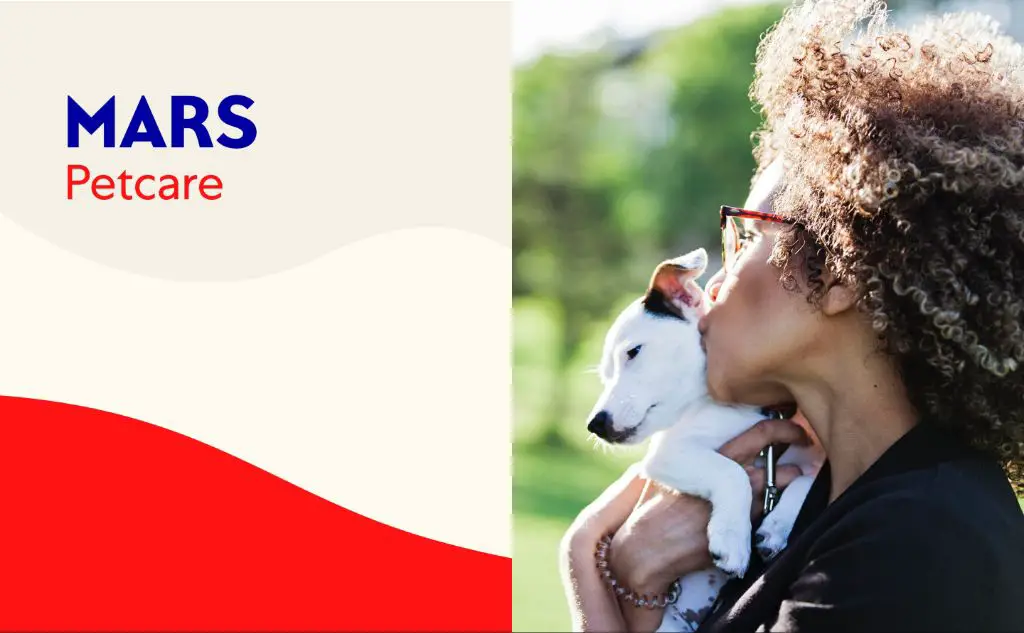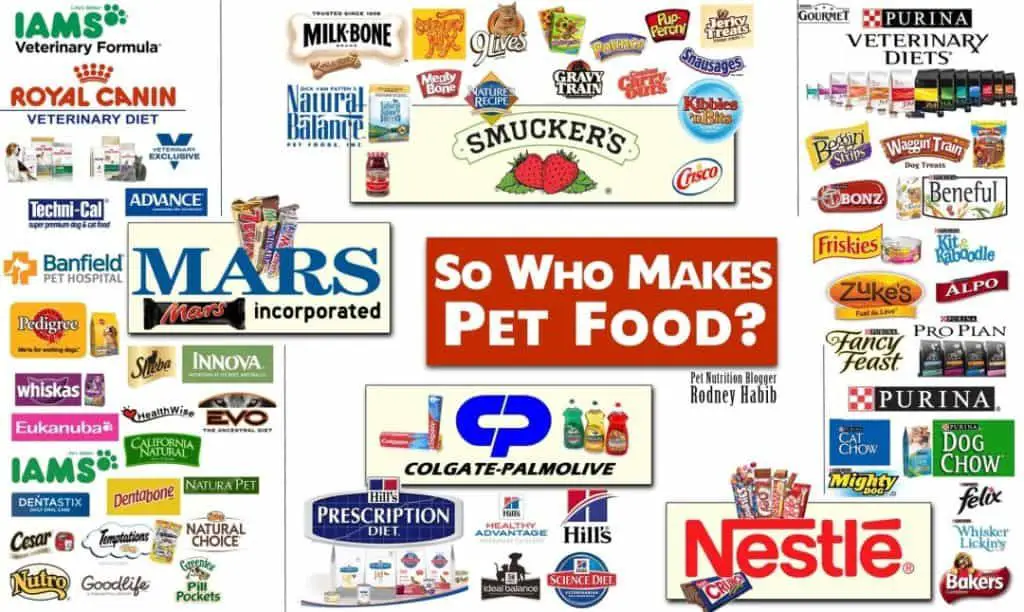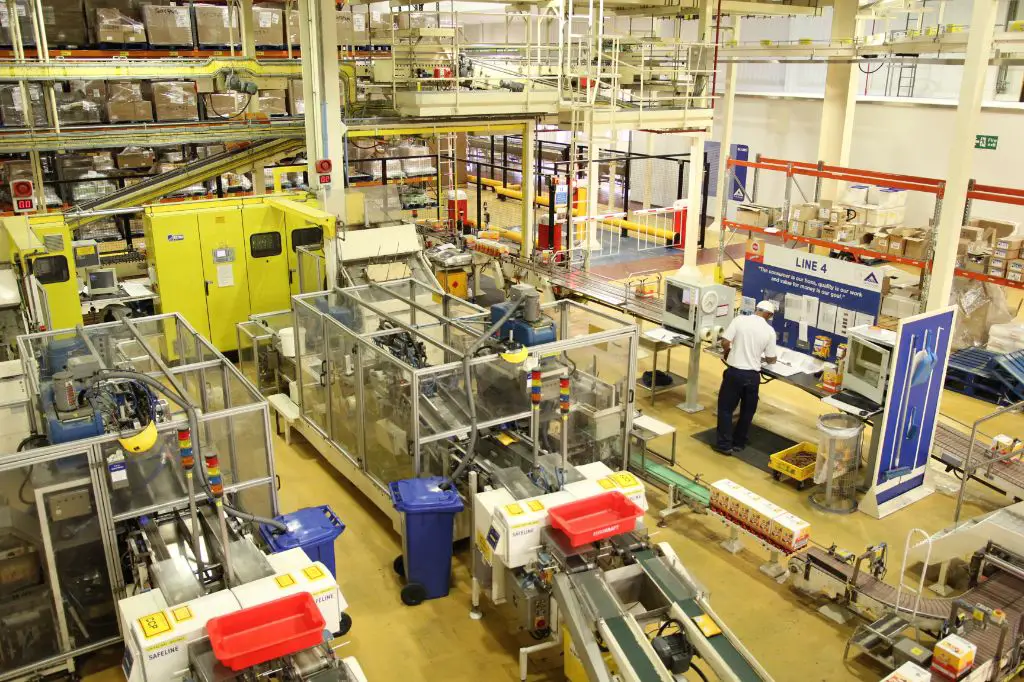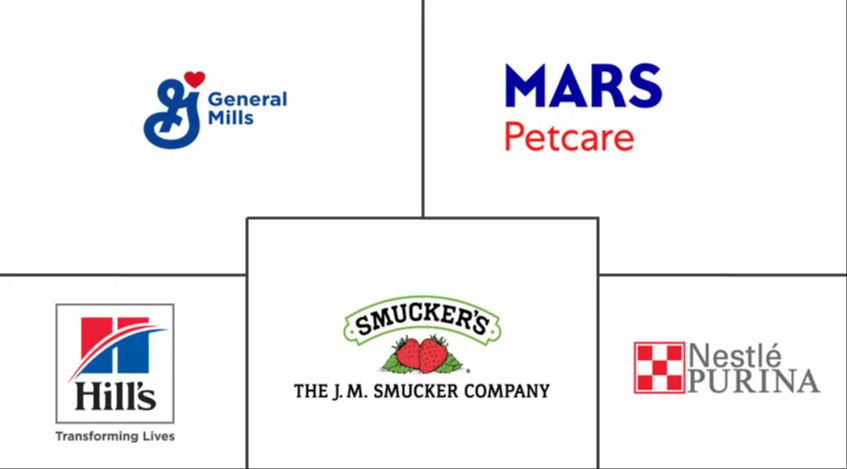Introduction

The pet food industry, and specifically the dog food sector, has grown tremendously over the past decade. As pet ownership increases globally, so does demand for quality commercial dog food. Major players in the competitive dog food market aim to offer nutritious, tasty foods that meet canine nutritional needs. With so many brands on the market, one company has emerged as the clear leader based on market share, brand recognition, and product innovations. This article will explore which company holds the number one spot in the global dog food industry.
#1 Mars Petcare
Mars Petcare is the leading dog food company in the world. Headquartered in Franklin, Tennessee, Mars Petcare has a wide portfolio of popular dog food brands that have helped make it the number one player in the global pet food industry.
Some of Mars Petcare’s top dog food brands include Pedigree, Cesar, Nutro, Royal Canin, Iams, Eukanuba, Natura, Blue Buffalo, Sheba, Temptations, Dreamies, Whiskas, Techni-Cal, Optima, Schmackos, Trill, Chappi, Frolic, Winergy, Perfect Fit, and Wisdom Panel.
Together, these brands have helped Mars Petcare capture over 20% of the global dog food market share. In 2020, Mars Petcare’s pet food division accounted for over $18 billion in worldwide sales. The company continues to grow through acquisitions, adding Blue Buffalo to its family of brands in 2018 in a $1.9 billion deal.
Mars’ Top Brands
Mars Petcare owns several of the most popular dog food brands in the world. Their top brands by sales include:
- Pedigree – One of the most recognizable dog food brands in the world, Pedigree offers a wide variety of dry and wet dog food. Pedigree is known for its affordable pricing and fun TV commercials featuring dogs.
- Whiskas – Although better known for cat food, Whiskas does offer a range of dry and wet dog foods. Whiskas aims to provide good nutrition through meaty recipes and tempting flavors.
- Cesar – Cesar produces gourmet style wet dog foods in easy tear-open containers. They offer recipes like Filet Mignon Flavor and Porterhouse Flavor to appeal to dog’s palates.
- Iams – Iams is a well-known brand among veterinarians and focuses on dog’s health and nutrition needs. They offer breed-specific and veterinary formulas.
- Eukanuba – A premium brand, Eukanuba creates specialized formulas for different breeds and ages. They focus extensively on research to meet dogs’ dietary requirements.

With trusted brands like Pedigree, Whiskas, Cesar, Iams and Eukanuba, it’s easy to see why Mars dominates the global dog food industry.
Mars’ Market Share
Mars Petcare is the clear leader in the global dog food market, controlling an estimated 20% of the market share. This gives Mars a significant lead over its competitors, with Nestle Purina estimated to hold around 15% of the market and private label brands taking up another 15%.
Mars’ dog food brands like Pedigree, Whiskas, and Royal Canin generate over $17 billion annually for the company. Mars Petcare’s pet food sales overall account for around 70% of the company’s total revenue. The company’s dominance in dog food is a major contributor to their status as the world’s largest pet food manufacturer.
Mars’ 20% global dog food market share is larger than its next top competitors combined. The company owes this leading position to strategic acquisitions of major brands like Pedigree and Whiskas and consistent investments into improving its manufacturing and supply chain operations. Mars’ scale and reach ensure it remains the top dog in the competitive pet food industry.
Mars’ Headquarters and History
Mars Petcare is headquartered in Franklin, Tennessee, just south of Nashville. The company traces its roots back to 1935 when Forrest E. Mars Sr. established a pet food division within his candy business. In 1942, the pet food division officially branched out into its own company called Kal Kan Foods, named after a location in southern California called the Kan Kanyon.
Kal Kan Foods was located in Los Angeles and focused primarily on manufacturing canned dog food. Over the next few decades, the Mars family continued to acquire pet food companies including Sentinel, Banfield Pet Hospital, and the UK’s Petcare. In 2007, these pet food businesses were consolidated under the Mars Petcare name.
Today, Mars Petcare operates as a subsidiary of the larger Mars corporation. The headquarters relocated from Los Angeles to Tennessee in 2018. Mars Petcare now manufactures many leading pet food brands and has factories located across the United States.
Mars’ Manufacturing
Mars Petcare has an extensive global manufacturing footprint with over 40 factories located across the Americas, Europe, Asia and Australia. This allows them to efficiently produce their dog and cat food products to meet demand in local markets worldwide.

Some of Mars’ largest pet food factories are located in the United States, including facilities in Tennessee, Kansas, and Arkansas. Their factory in Columbus, Ohio is their oldest and largest manufacturing plant. Outside the US, they have major dog food factories in countries like Mexico, Brazil, UK, Netherlands, Germany, Hungary, Russia and Thailand among others.
Their widespread manufacturing presence across continents allows Mars to optimize their supply chain and minimize transportation costs and delivery times. It also provides flexibility to tailor recipes and production to regional regulations and local pet dietary preferences.
Mars’ Product Development
Mars takes a scientific approach to developing its dog food products. The company employs over 1,000 scientists, veterinarians, and pet nutritionists who carefully research dogs’ nutritional needs. Mars has invested over $300 million in research centers dedicated to advancing pet nutrition and health.
Recent innovations by Mars include tailored nutrition based on a dog’s life stage, breed size, and activity level. For example, Pedigree offers Puppy Growth and Protection specifically formulated for a puppy’s developing immune system and muscle growth. Iams ProActive Health targets the unique needs of smaller and larger breed dogs. And Nutro’s Farm’s Harvest line provides grain-free recipes focused on digestive health.
Mars also develops new flavors and textures to appeal to dogs’ preferences. Pedigree recently launched a line of wet food called Pedigree Choice Cuts, which have real meat chunks and gravy that dogs crave. Additionally, Mars incorporates cutting edge food science into making kibble more palatable and easier to digest.
Other Leading Dog Food Companies
While Mars Petcare is the clear leader in the dog food industry, there are other major players with significant market share including Nestle Purina PetCare and Colgate-Palmolive.
Nestle Purina PetCare is Mars Petcare’s biggest competitor. Founded in 2001 after Nestle’s purchase of Ralston Purina, the company offers popular dog food brands like Purina Dog Chow, Purina ONE, and Purina Pro Plan. Nestle Purina PetCare has major manufacturing facilities in the United States and a large research and development operation for creating innovative pet food products.

Colgate-Palmolive is another top dog food company, known for brands like Hill’s Science Diet and Hill’s Prescription Diet. Colgate-Palmolive focuses on veterinarian-recommended nutritional dog food developed by scientists and nutritionists. The company has grown Hill’s into a leading pet food brand recommended by vets for dietary needs and issues.
The Dog Food Market
The global dog food market is a massive industry, estimated to be worth over $90 billion in 2022. The market has seen consistent growth in recent years due to factors like increasing pet ownership, premiumization of pet food, and owners treating pets as family members.
Dog food sales grew around 45% globally between 2011-2021. North America and Western Europe represent the largest share of the global dog food market. However, developing regions like Latin America, Eastern Europe, and Asia Pacific are expected to see faster growth rates in the coming years.
Within the dog food market, trends like natural and organic, fresh/raw, and humanization of food are driving growth of premium and superpremium foods. Pet owners are increasingly looking for high-quality ingredients, whole proteins, grain-free recipes, and functional ingredients in dog food. This presents opportunities for innovation and value-addition in the global dog food industry.
Conclusion
Mars Petcare has clearly established itself as the number one dog food company in the world through its leading brands like Pedigree, Whiskas, and Royal Canin. With an estimated global market share of 20%, Mars dominates the pet food industry. Its size, global manufacturing and distribution network, and continued investment in product development and innovation make Mars a formidable competitor.
While there are several other major players in the dog food market like Nestle Purina and J.M. Smucker, none come close to challenging Mars’ market lead currently. However, the pet food market remains competitive and dynamic. As consumer trends shift toward more premium, natural and organic pet foods, competitors may gain ground on Mars in certain market segments. Smaller, more specialized pet food companies also threaten to disrupt the market. But Mars’ diversity in product offerings across price points allows it to remain adaptable.
In the future, Mars will likely continue to innovate and diversify its portfolio of brands and products to maintain its leadership in the dog food market worldwide. With its resources and expertise, Mars is poised to thrive even as competition heats up. But sustainably sourcing quality ingredients while keeping products affordable will be an ongoing challenge. Ultimately, delivering nutritional value and quality will be the key factors in determining which dog food companies stay on top.